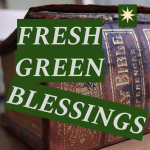
Isaiah 2:4 (NRSV): He shall judge between the nations, and shall arbitrate for many peoples; they shall beat their swords into plowshares, and their spears into pruning hooks; nation shall not lift up sword against nation, neither shall they learn war any more.
Joel 3:10: Beat your plowshares into swords, and your pruning hooks into spears; let the weakling say, “I am a warrior.”
∞∞∞∞∞∞∞∞
Many people who regard the Bible as sacred focus on the overall meaning of the entire Bible. They want everything to fit a set of ethical or moral norms or to fit within a specific creed or a particular theology. Such is the work of a contortionist. If we are to fit every line of the Bible into a single theological framework, we must twist and bend the text. Like the effort of creating a tightly twisted coil, such work requires great force and endurance. The text is likely to spring back in defiance if the contortionist relaxes.
Those who mock the sacrality of the Bible claim victory every time the Biblical text recoils: Look at the inconsistencies! Do you claim that that misogynistic story of rape and violence is a spiritual teaching?! How can you call this book “sacred”?
Can every line fit a specific creedal view? Is every line sacred? Is any line sacred?
What is possible beyond binary thinking? Relational dialectics allows for the tensions of contradictions in interpersonal relationships. For example, a healthy couple may value both predictability and novelty in their relationship. We all dwell with contradictions and within contradictions. We may celebrate, enjoy, regret, or be confused by the contradictions we see in ourselves and our loved ones.
Within Buddhism, koans, such as the famous “What is the sound of one hand clapping?” embrace and value contradiction, as do Buddhist sacred texts, such as the Diamond Sutra. In Buddhist sutras and koans, such tensions are intentional and instructional. Within the Judeo-Christian Bible, with its many books and countless authors, the tension of contradictions may be far less intentional, but it is no less instructive.
∞∞∞∞∞∞∞∞
Beat your swords into plowshares. Beat your plowshares into swords. What do we do with diametrically opposed views that claim truth or sacrality? How do we handle contradictions within the Bible? Do these Biblical contradictions serve to teach us anything about greater contradictions in our present lives and current culture? How do we resolve the tensions when one line of the Bible touches our soul and nourishes our spirit while a line in the next paragraph revolts us? And, if we do not “resolve it,” how do we “sit with it”? Can we learn by listening to how others sit with the same text? What about the unheard voices that might respond to disturbing Biblical texts? Can we generate such voices? What value does that hold? What do you do when the text supports your theology and refutes a contrary theological view? And what do you do when the text confronts or opposes your own perspective? Is there “spiritual value” in this process of wrestling with the tensions of Biblical text and/or “sitting with” the tensions? What makes any text, Biblical or otherwise, sacred?
(Music: Courtesy of Adrian Von Ziegler, “Circle of Life.” )